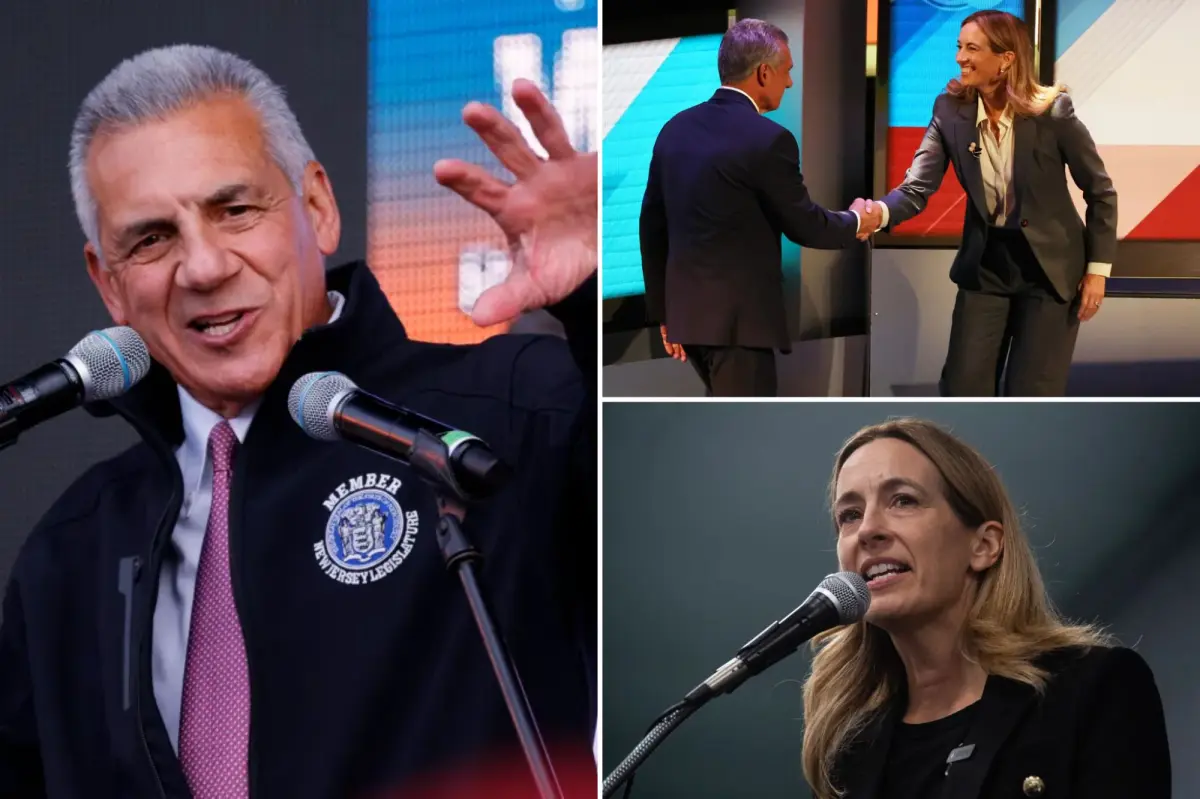Copyright Cable News Network

In 2019, South African filmmaker Rethabile Ramaphakela was on the cusp of her big break. After more than a decade in the film sector, the comedy screenwriter, producer and director had scored funding for her first feature-length film, ‘Seriously Single.’ “We were set to release in 2020; we were so excited,” says Ramaphakela. “It was going to be our big cinema release — and then Covid came around, and we were kind of stuck.” But like any good comedy, timing is everything. And a bigger opportunity was just around the corner. “Netflix had seen the film, and they loved it,” says Ramaphakela. “When Covid hit, they were like, why not just make it a Netflix Original? So we licensed the film to them, and that’s sort of when our story started.” Since then, Ramaphakela and her production company Burnt Onion have produced several original series for the streamer, including the award-winning “How to Ruin Christmas.” Ramaphakela is one of several South African creators who’s been able to find sustainable funding, regular commissions, and a huge international audience through Netflix. The US-based streaming giant entered the African market in 2016, and after an initial $175 million investment in South Africa, Nigeria and Kenya between 2016 through 2022, doubled down on South Africa, pouring approximately $250 million into content between 2021 and 2024. With a focus on creating local content, streaming platforms like Netflix and South African service Showmax have become a major catalyst for growth in Africa’s film and television sector. A global production hub South Africa has become one of Netflix’s global production hubs, largely because of infrastructure like studio spaces and the “high standard” of local production crews, says Kaye-Ann Williams, director of scripted content for Netflix Africa. In addition to commissioning original content, the nation is also used as a production location for international series, including “One Piece” (2023) — a live-action series based on the Japanese manga of the same name — the largest Netflix production in Africa in terms of scale and budget. The African audience “want to watch shows that are in their accents, in their dialects, that reflect their lived experience, that touch on topics and things that concern them,” says Williams. But the market on the continent is still small. Netflix’s main competition is Showmax, which dominates regional streaming in Africa with a strong local content strategy that focuses on reality shows, sports, telenovelas and soaps, as well as the exclusive licensing rights to stream HBO Max content in Africa. (HBO Max is owned by CNN’s parent company, Warner Bros Discovery.) International streamers, on the other hand, have limited presence in the African market. Disney+, available in six African countries as of 2022, has produced just a handful of content on the continent, and Amazon’s Prime Video stopped commissioning original content in January 2024, after releasing its first original African movie just one year earlier. Part of the difficulty is connectivity. While streaming is viable in many African nations — such as South Africa, Nigeria, and Kenya, which have the largest entertainment and media sectors on the continent — internet access remains low, at around 37% in sub-Saharan Africa. Mobile movies That could soon change, though. In 2021, Google announced a $1 billion investment in Africa for projects that would provide the continent with fast, affordable internet, including the installation of new fiber-optic cables that can increase speed and capacity. Alex Okosi, managing director of Google Africa, says that the continent’s “mobile-first revolution” has been “fundamental” to the changes in its entertainment and media landscape. An uptick in smartphone adoption has “been shifting people away from traditional linear TV to much more personal, on-demand viewing that really allows people to unlock the content they want, when they want and how they want it,” Okosi adds. With mobile data the main way most people on the continent get online, several streamers, including Netflix, have introduced a mobile-only subscription plan for a fraction of the cost. But streamers aren’t the only option: free, ad-supported platforms like YouTube, which is owned by Google, are creating new avenues for creators to reach audiences, says Okosi. He highlights Nigerian filmmaker Omoni Oboli, a key figure in Nollywood and often referred to as the “box office queen” for her hit movies, who creates full-length features for her YouTube channel. Her recent film, “Love in Every Word,” has 29 million views and counting, showing a shift away from traditional television and cinemas as the only way to view premium content. Growing investment But film and creative industries across Africa still face a multitude of challenges, including infrastructure gaps, limited funding, and IP (intellectual property) protection. Nigeria’s Nollywood, second only to India’s Bollywood in terms of output, is a filmmaking powerhouse. Production teams often work on tight budgets and short timelines, but profit margins are slim, and the industry suffers hugely from piracy: it’s estimated that Nigeria lost $3 billion in revenue in 2019 alone to digital piracy. Investment is being made, though. Earlier this year, Africa’s trade finance bank Afreximbank launched a $1 billion Africa Film Fund to finance production, distribution, and digital infrastructure. London-born, Hollywood actor Idris Elba, whose parents are from Sierra Leone and Ghana, is moving ahead with plans to build studios in Zanzibar, Ghana, and Sierra Leone. “Much of the imagery about Africa isn’t even generated from Africa,” Elba told CNN in 2024. “A lot of media is centered around (negative depictions of Africa). But the median age in Africa is 19; these young people are optimistic and deserve the chance to tell their own stories.” Streamers like Netflix are also investing in education and training: the budget for “One Piece” included $400,000 for training and development of young talent, and earlier this year, the streamer launched a “ScreenCraft Pathways” program, designed to offer emerging talent paid, hands-on experience. “Where we have really worked and invested is in the writers’ rooms,” says Williams. “The development has not just been about putting them in our programs or courses, but it’s been taking that skill and putting it to practice on a show. That continuity has produced shows like ‘Bad Influencer,’ where the creative producer and the creator of the show came through one of our Grow programs,” Williams adds. Local stories, global impact Some critics worry that streaming services will homogenize the audiovisual sector, and that molding content for a generic, global audience will remove nuance and cultural authenticity. However, several creators working on the continent have pushed back against that idea. Nigerian film director Akin Omotoso, who has produced films like “Rise” (2022) for Disney+ and “Marked” (2025) for Netflix, says his experiences helped him grow “immensely as a filmmaker.” “Where some fear interference (or) streamlining of story, I see people working,” Omotoso told CNN in an email. “Money to make films has never come without strings attached — it’s always been up to the filmmaker to navigate external requirements and their own unique and authentic expression.” Similarly, Bradley Joshua, co-founder and CEO of South African production company Gambit Films, the creators of hit series “Blood and Water,” has found Netflix’s emphasis on local content “surprising, but refreshing.” “Our first impression was, now we have to tell stories that are globally resonant,” says Joshua. “But they were like, no, actually, we need to tell stories that resonate locally.” The larger budget for projects has also allowed him to bring on a cultural and language advisor, to ensure that projects accurately represent the diversity of South Africa, he adds. Ramaphakela doesn’t feel that working with global streamers has made her work less culturally specific, but she does note that the industry has become more “risk-averse,” globally. “The bottom line, people need to make their money back,” she adds. Luckily, Africa is a largely untapped market — creating a huge opportunity for those willing to invest. “I’m excited for more streamers to open up,” says Ramaphakela, adding: “I do look forward to, the industry opening up, in terms of creativity and new ideas and new shows — can’t wait for the next 10 years.”



